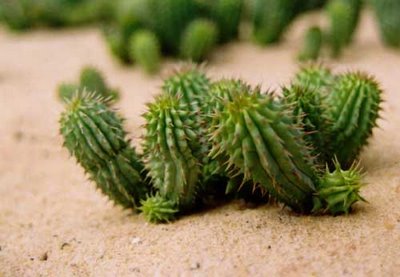
More than two thousand years ago, the philosopher Cicero said,"We should eat to live, not live to eat." People who abuse food often desperately wish they could live by Cicero's dictum, but they cannot. Some who abuse food feel helpless in the presence of food -- as if bewitched by it. Their behaviour is ruled by appetite and desire, not hunger -- at least not biological hunger.
It should be noted that overeating is not the only way in which food is abused. Some people manifest overcontrolled behaviour in the presence of food. Such individuals become phobic and will resist food to the point of emaciation.
Consequently, food abuse exists when an individual responds to food in pathological and self-defeating ways. Thus, the excessive eating of food may take the place of sexual satisfaction, help reduce anxiety, be a way to cope with boredom, be a substitute for love and attention, be a way to express anger, and so forth. These maladaptive aspects of food abuse can result in morbid changes in the body including obesity at the one extreme and emaciation at the other.
It is important to stress that obesity is not synonymous with food abuse. A person can abuse food and still be very thin or have a normal weight. Compulsive eating, one kind of food abuse, is characterized by the pathological eating and digestion of calories significantly beyond one's metabolic needs. And of course, compulsive eating is a contributing factor to obesity. However, it is only one factor. Other contributing factors to obesity include body type, metabolic rate, and body chemistry. These factors, biological in nature, to some extent reflect a genetic predisposition. People are not 'doomed to be fat' by their genes, however. Eating in moderation, eating foods high in fiber and low in saturated fat and refined sugar, and a reasonable amount of exercise help modify the impact of 'obesity genes' in a beneficial way. Although compulsive eating is but one factor, in obesity, it is probably in the vast majority of cases the principal factor. Therefore, it has to be indicted as one of the principal patterns of food abuse.
Other signs and symptoms associated with the principal psychological symptom of food abuseinclude the following:
1. Obsessively thinking about food
2. A failure of the will -- an ability to exercise voluntary control over eating
3. Sneaking food, hiding food, and lying to others about how much one eats
4. Using food somewhat like a drug -- as a way of coping with life's problems
5. Going on and off diets (riding a diet merry-go-round)
6. Gaining, losing and regaining significant amounts of weight (the yo-yo syndrome)
7. Extreme dissatisfaction with one's body image
8. A magical belief that all of one's weight or eating problems can be solved with a new kind of pill, a series of shots, hypnosis, or plastic surgery.
Although the above signs and symptoms are clearly associated with overeating and obesity, it is worth noting they are also associated with the pathological avoidance of food. Persons who fear becoming fat or who are prone to starve themselves tend, like those who overeat, to think obsessively about food. Also, they compulsively avoid food or compulsively diet; consequently, they have lost voluntary control over their eating., And they often have a distorted body image imagining themselves to be fat when instead they are too thin.
Did You Know?

Hoodia Gordonii has been used for many generations by the tribesmen of the Kalahari Desert to stave off hunger while hunting.
Hoodia Gordonii is a genus of succulent plants(cactus-like plant) in the family Apocynaceae. They are a native to the semi-arid regions of South Africa, that is widely used traditionally by the San people of southern Africa not only as an appetite suppressant, but also as a thirst quencher and as a cure for severe abdominal cramps, hemorrhoids, tuberculosis, indigestion, hypertension and diabetes.
Hoodia is a potential adjunct to behavior modification for weight control. There are various species of hoodia, but the Gordonii variation is the only one that contains the all-natural appetite suppressant. This type of hoodia contains a molecule that has similar effects on nerve cells as glucose, and tricks the brain into the sensation of fullness. Results of human clinical trials in Britain suggest that hoodia may reduce the appetite by hundreds of calories a day or more. Hoodia is available as Hoodia Diet Pills.
No comments:
Post a Comment